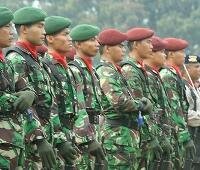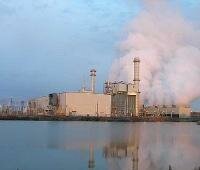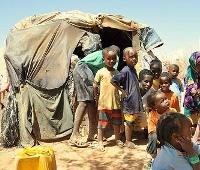Indonesia’s Military and Climate
Issues:Climate change, Global militarisation
With more than 17,000 islands and 80,000 kilometres of coastline, Indonesia is extremely vulnerable to climate change. Analysts believe that rising temperatures will almost certainly have a negative impact on human security in Indonesia, which in turn will increase the probability of domestic instability and introduce new regional security concerns. With this in mind, it’s important that Indonesia’s armed forces take a range of measures to prioritize environmental security, including procuring new equipment, strengthening bilateral and multilateral relations, and undertaking training for new roles and missions.
Article source: The Diplomat Blogs
Image source: Studio Titus
Read more »Posted on 25/07/11
Conflict, Poverty and Marginalisation: The case of Curvaradó and Jiguamiandó (Urabá, Colombia)
Issue:Marginalisation
In Colombia there are many regions where poverty and the absence, or weak presence, of the state has facilitated the emergence of violence by armed groups. Among these are the Afro-Colombian communities of the Curvaradó and Jiguamiandó in the Urabá region
Image source: Yuliam Gutierrez
Read more »Posted on 21/07/11
Next Israeli-Lebanese war looms large
Issue:Competition over resources
Beirut is immersed in political squabbles while Tel Aviv is building international support on disputed sea borders
Israel is preparing for its fifth war against Lebanon, as it believes that Beirut is not entitled to offshore natural gas deposits, allegedly falling outside non-demarcated maritime borders. This wild assertion is advanced allegedly because the 2007 marine boundary negotiations between Israel and Cyprus on the one hand, and those between Beirut and Nicosia separately, delineated offshore lines.
Article source: Gulf News
Image source: portland general
Read more »Posted on 20/07/11
The Geopolitics of Climate Change
Issues:Climate change, Marginalisation
In a speech to Future Maritime Operations Conference at the Royal United Service Institute, London, Secretary of State for Energy and Climate Change examines the security implications of climate change:
“We cannot be 100% sure that our enemies will attack our country; but we do not hesitate to prepare for the eventuality. The same principle applies to climate change, which a report published by the Ministry of Defence has identified as one of the four critical issues that will affect everyone on the planet over the next 30 years.
Around the world, a military consensus is emerging. Climate change is a ‘threat multiplier’. It will make unstable states more unstable, poor nations poorer, inequality more pronounced, and conflict more likely. And the areas of most geopolitical risk are also most at risk of climate change.”
Article source: DECC
Image source: DECCgovuk
Read more »Posted on 20/07/11
Drought in east Africa the result of climate change and conflict
Issues:Climate change, Competition over resources, Marginalisation
Aid agencies say that weather in the region has become more erratic and years of war leave populations especially vulnerable
Prolonged drought in the Horn of Africa is the immediate cause of the severe food crisis already affecting around 10 million people in parts of Kenya, Ethiopia, Djibouti and Somalia. Rains have failed over two seasons, with a strong La Niña event having a dramatic impact across the east coast of Africa. Now this year's wet season has officially ended, there is little prospect of rain or relief before September.
Article source: The Guardian
Image source: Oxfam International
Read more »Posted on 14/07/11
Preparing for the Impact of a Changing Climate on U.S. Humanitarian and Disaster Response
Issue:Climate change
Climate-related disasters could significantly impact military and civilian humanitarian response systems, so “an ounce of prevention now is worth a pound of cure in the future,” said CNA analyst E.D. McGrady at the Wilson Center launch of An Ounce of Preparation: Preparing for the Impact of a Changing Climate on U.S. Humanitarian and Disaster Response. The report, jointly published by CNA and Oxfam America, examines how climate change could affect the risk of natural disasters and U.S. government’s response to humanitarian emergencies.
Article source: The New Security Beat
Image source: Oxfam International
Read more »Posted on 14/07/11









